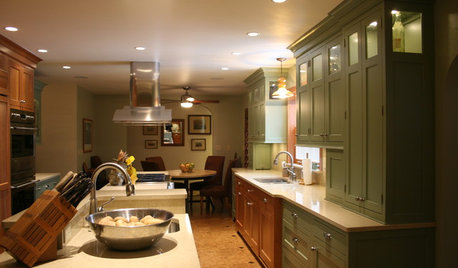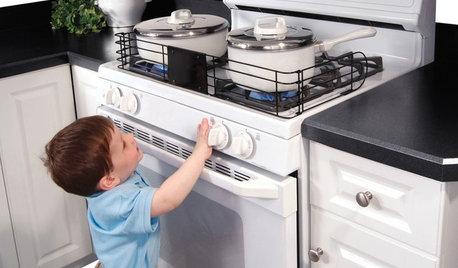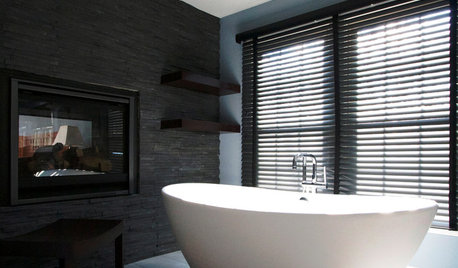Advice, please, about gas welding equipment
joel_bc
19 years ago
Related Stories

KITCHEN DESIGNSmart Investments in Kitchen Cabinetry — a Realtor's Advice
Get expert info on what cabinet features are worth the money, for both you and potential buyers of your home
Full Story
HEALTHY HOMEHow to Childproof Your Home: Expert Advice
Safety strategies, Part 1: Get the lowdown from the pros on which areas of the home need locks, lids, gates and more
Full Story
LIFEGet the Family to Pitch In: A Mom’s Advice on Chores
Foster teamwork and a sense of ownership about housekeeping to lighten your load and even boost togetherness
Full Story
HOME OFFICESQuiet, Please! How to Cut Noise Pollution at Home
Leaf blowers, trucks or noisy neighbors driving you berserk? These sound-reduction strategies can help you hush things up
Full Story
REMODELING GUIDESContractor Tips: Advice for Laundry Room Design
Thinking ahead when installing or moving a washer and dryer can prevent frustration and damage down the road
Full Story
BATHROOM DESIGNDreaming of a Spa Tub at Home? Read This Pro Advice First
Before you float away on visions of jets and bubbles and the steamiest water around, consider these very real spa tub issues
Full Story
DECORATING GUIDES10 Design Tips Learned From the Worst Advice Ever
If these Houzzers’ tales don’t bolster the courage of your design convictions, nothing will
Full Story
THE ART OF ARCHITECTURESound Advice for Designing a Home Music Studio
How to unleash your inner guitar hero without antagonizing the neighbors
Full Story
CONTRACTOR TIPSBuilding Permits: What to Know About Green Building and Energy Codes
In Part 4 of our series examining the residential permit process, we review typical green building and energy code requirements
Full Story
FUN HOUZZHouzz Call: Tell Us About Your Dream House
Let your home fantasy loose — the sky's the limit, and we want to hear all about it
Full Story





Pooh Bear
joel_bcOriginal Author
Related Professionals
River Forest Landscape Architects & Landscape Designers · White Oak Landscape Architects & Landscape Designers · Edmond Landscape Contractors · Gaithersburg Landscape Contractors · Lakewood Landscape Contractors · Lebanon Landscape Contractors · Los Banos Landscape Contractors · Morrisville Landscape Contractors · San Bruno Landscape Contractors · Uxbridge Landscape Contractors · Vermilion Landscape Contractors · Wailuku Landscape Contractors · Black Forest Siding & Exteriors · Enfield Siding & Exteriors · Oak Creek Siding & ExteriorsPooh Bear
joel_bcOriginal Author
hotzcatz
joel_bcOriginal Author
Pooh Bear
joel_bcOriginal Author
Pooh Bear
Dirtdoctor
Tsavah
joel_bcOriginal Author
huisjen